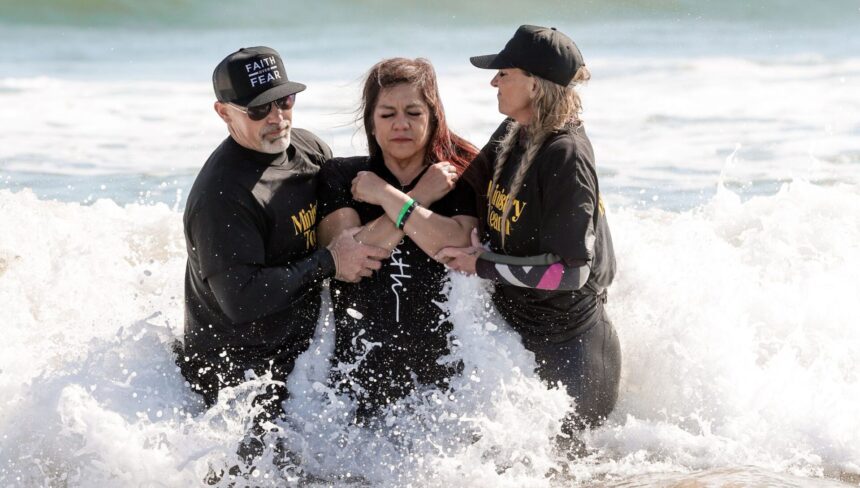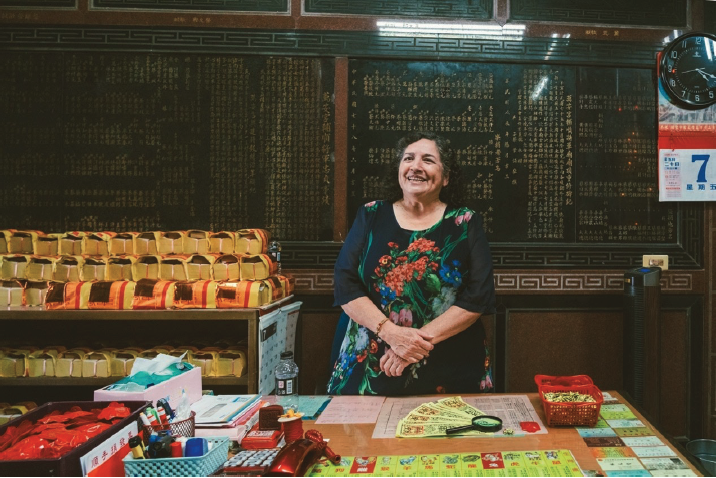
1) Baptize America is a new movement that seeks to encourage revival by holding baptism events for adult converts to Christianity. The movement was first founded as Baptize California by Pastor Mark Francey of the non-denominational Oceans Church in Orange County in 2023 and has since expanded nationwide. The movement draws on more than 650 churches, with around 60,000 people baptized so far. Francey says that Baptize America is drawing on a surge of adults becoming baptized, particularly among Gen Z men [the trend of adult baptism has also been seen in European Catholic churches]. The movement is planning a synchronized baptism event on Pentecost Sunday in 2026. While the organization seeks to link up and organize baptisms in joint events by any interested area Christian churches, its publicity shows baptisms done by immersion, a trademark of many evangelical congregations. Often the baptisms are done outside of church structures, such as at a beach. Francey says that “Getting in the ocean to do something so transcendent in a transcendent place like the ocean, it’s just a really special way to connect with God.” He believes that the U.S. is experiencing a spiritual revolution comparable to the 1970s [where young adult baptisms were also prominent, such as in the Jesus movement]. (Sources: CBS News, September 30; Baptize America website, https://baptize.org/)

2) The story of Elvira Tsai, a Chilean Catholic who has become a ritual leader in a Taiwanese temple, provides a remarkable example of transnational circulation, the evolution of ritual roles, and cultural adjustment. Initially, she met a Taiwanese businessman in Brazil in the 1980s and followed him to an agricultural village in Taiwan, where temples formed the center of communal life. When her husband, who had served as the caretaker for Wan’an Temple, died suddenly in 2002, leaving her with two young sons and no nearby family, she took up his role in the temple. Villagers urged her to stay, and after consulting the temple’s deity, General Fushun, she assumed leadership—marking an unprecedented shift in a role typically held by local men.

Elvira had to master both Taiwanese and Mandarin, learning alongside her children and with community support. She adapted to practices that initially shocked her—thick incense smoke, ritual pig sacrifices, and wearing black for soul-calling ceremonies. Despite these challenges, she came to believe in General Fushun’s protection while maintaining her Christian faith in her heart, embracing a syncretic spirituality shaped by necessity and devotion. Her authority emerged not through formal appointment but through daily practice: opening the temple at dawn, preparing offerings, folding talismans, performing rituals, and becoming part of village social life. Her story demonstrates how belonging transcends bloodline, emerging through sustained participation and trust in a community that accepted her foreign origins without question.
(Source: Religioscope, September 16)